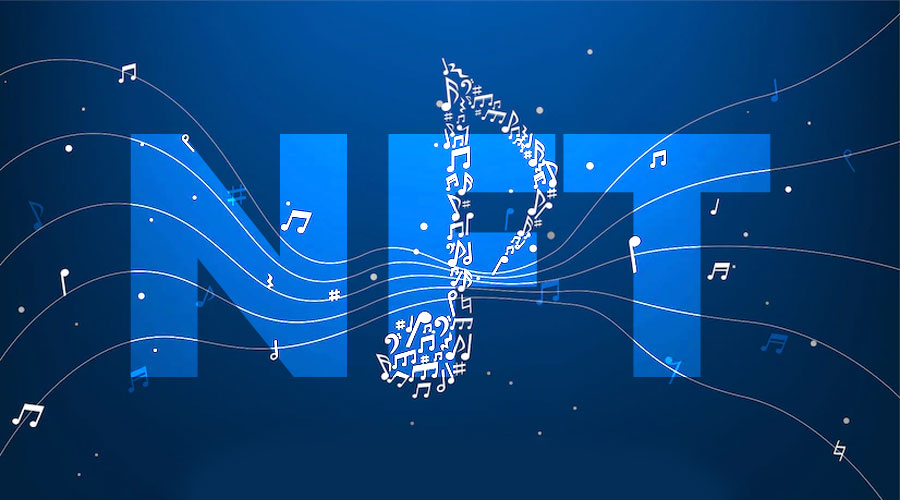The music industry has undergone a significant transformation over the last few decades with the introduction of new technologies. The internet has made it easier for artists to distribute their music to a global audience, and social media has helped them connect with their fans directly. However, the latest technology that is poised to revolutionize the music industry is blockchain, specifically non-fungible tokens (NFTs). In this article, we will explore how NFTs are changing the game for musicians and the music industry as a whole.
What are NFTs?
NFTs are digital assets that are stored on a blockchain. They are unique and cannot be replicated or duplicated, hence the term “non-fungible.” Each NFT is a one-of-a-kind item that can represent anything from artwork to videos to music.
How do NFTs work in the music industry?
NFTs are transforming the music industry by creating new opportunities for artists to monetize their work. Musicians can create NFTs representing their music, which can be sold to fans as unique collectibles. Fans can own a piece of music history and support their favorite artists at the same time. This is a win-win situation for both parties.
NFTs can also be used to sell concert tickets, merchandise, and exclusive experiences. For example, an artist can create an NFT representing a backstage pass that can be sold to a fan. The fan can then use the NFT to access a meet-and-greet with the artist or other exclusive experiences.
Benefits of using NFTs in the music industry
One of the most significant benefits of using NFTs in the music industry is that it gives artists more control over their work. Traditionally, musicians have relied on record labels and streaming platforms to distribute music and generate revenue. This often leads to artists being underpaid for their work and having little control over how their music is used.
With NFTs, artists can sell their music directly to fans without needing a middleman. This means they can set prices and control how their music is used. Additionally, since NFTs are stored on a blockchain, artists can receive a percentage of the sale each time the NFT is sold on the secondary market. This creates a new revenue stream for artists, which is especially important in an industry with low streaming royalties.
Another benefit of using NFTs in the music industry is that it provides a new way for artists to engage with their fans. NFTs can be used to offer exclusive experiences, such as meet-and-greets, backstage passes, and private concerts. This creates a deeper connection between artists and their fans, which can lead to increased loyalty and support.
Challenges of using NFTs in the music industry
While NFTs offer many benefits to the music industry, there are also some challenges to consider. One of the main challenges is that the technology is still new and not widely understood. This can make it difficult for artists to know how to use NFTs effectively and for fans to understand what they are buying.
Another challenge is that the market for NFTs is still developing, and it can be challenging to determine the true value of a particular NFT. This can lead to speculation and volatility in the market, which can be risky for artists and fans.
Examples of NFTs in the music industry
Several musicians have already started using NFTs to monetize their work and engage with fans. For example, the electronic music duo The Chainsmokers sold a series of NFTs that included digital artwork, access to exclusive experiences, and a custom song. The auction generated over $2.5 million in sales.
Grammy-nominated artist 3LAU also made history by selling an NFT album for $11.6 million. The album, called “Ultraviolet,” included 11 unique NFTs that represented each song on the album and other exclusive content and experiences.
Other musicians like Kings of Leon, Grimes, and Deadmau5 have also started selling NFTs to fans. The market for music-related NFTs is growing rapidly, and it is expected to continue to expand in the coming years.
The Future of NFTs in the Music Industry
As the market for NFTs continues to grow, we can expect to see more musicians and record labels adopting this technology. NFTs offers a new way for artists to monetize their work, control their music rights, and engage with their fans.
In addition to selling music-related NFTs, we can also expect to see more artists and record labels using NFTs to sell concert tickets, merchandise, and other exclusive experiences. For example, an artist could create an NFT representing a VIP package, including a meet-and-greet, front-row tickets, and a signed piece of merchandise.
Moreover, NFTs could also be used to create new revenue streams for musicians by tokenizing the rights to their music. This would allow fans to purchase a stake in a particular song or album, which would entitle them to a share of the revenue generated by that music.
Conclusion
NFTs are transforming the music industry by providing a new way for artists to monetize their work, control their music rights, and engage with their fans. While there are still some challenges to overcome, the potential benefits of using NFTs in the music industry are vast. As the market for NFTs continues to grow, we can expect to see more musicians and record labels adopting this technology and creating new opportunities for artists and fans alike.



